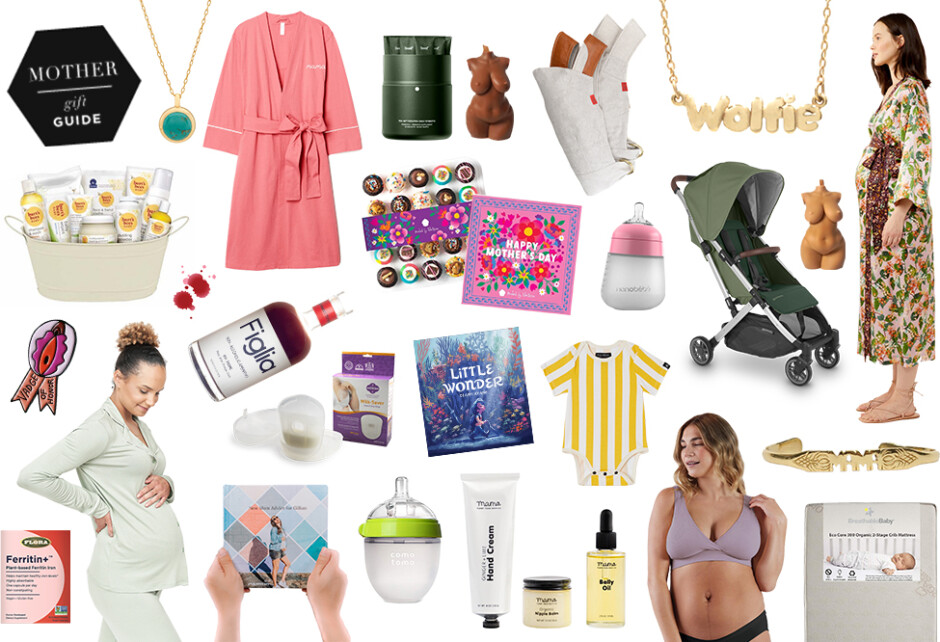
Q&A With Breastmilk’s Director, Dana Ben-Ari
Written by Katie Hintz-Zambrano
Photography by Photo Courtesy of Dana Ben-Ari
We’ve already told you about the film Breastmilk (a couple of times, actually!). And now we’d like you to hear about the thought-provoking movie from the woman who made it, director and mama of two, Dana Ben-Ari. We suggest you watch the film asap (if you haven’t already, it’s now on iTunes, Google Play, and Amazon Instant Video), and read this interview, too. In whichever order you’d like…
How did the idea for Breastmilk come to you?
“As a mother who breastfed over the years, I have seen many women and families struggle over the physical aspects of breastfeeding or the cultural challenges that surround it. It got me thinking about the causes, the pressures, and also the limitations society still places on women. It’s hard to pinpoint the precise moment, but eventually I realized that a documentary would allow me to showcase the experiences women were going through and make the issues visible and relevant.”
How long was the process in making it?
“I started thinking about this subject after the birth of my first child, and I began with audio interviews, but it wasn’t until after the birth of my second that I put together our production team and really went out to look for potential mothers and families who would participate. Once that process began, it took about four years of filming and part-time editing to complete.”
When did you link up with Abby Epstein and Ricki Lake as executive producers?
“Abby and I met through a mutual friend from Choices in Childbirth who had already seen an early version of the film. We quickly realized that it would be fun to join forces and bring the film to a wider audience. It’s been a wonderful experience working with them and they’ve been huge supporters.”
Their other film, The Business of Being Born, has had such a huge impact. How do you hope Breastmilk has a similar impact?
“Breastmilk is filmed in a more observational style and lets the viewer draw her/his own conclusion. While it is a subtle critique of the current culture, it aims to open up dialogue rather than judge a woman’s decision. The experience of viewing the film can be very impactful and I hope that the audience enjoys and shares it with as many people as possible.”
How did you find your sources/profile subjects for the film? How did you cast them?
“I met with many friends of friends, posted on online parenting groups, sent out emails, and even posted old-school flyers. We received so many stories from around the country before finalizing our focus on women who were expecting for the first time. Also, diversity has always been important to me, so I tried my best to include women of various backgrounds.”
Were there other women filmed who did not make the final edit?
“Yes, of course. There were women who couldn’t commit for the full year of filming, and others whose stories were too similar to the ones that we kept. There were also additional experts whom I loved, but at the end of the day I made the decision to include fewer ‘expert’ voices and more of the women as experts.”
What surprised you in the course of making the film?
“Having breastfed already and spoken to many women on the subject, there wasn’t much about breastfeeding that completely shocked or surprised me. It was, however, a wonderful surprise to see the women and men we interviewed open up to our cameras so freely with their stories.”
What were the biggest challenges in creating the film?
“As a first-time director, there were certainly a few challenges I experienced from the technical side. Thankfully I had a wonderful team and a talented director of photography who taught me a lot. I also wanted to make sure the mothers and partners had enough space and let them have their own journey without interfering or advising them. Finding the right balance of asking questions and standing back took some time but we got into the groove seamlessly.”
Tell us about your goal of keeping the film neutral in POV.
“I knew from the very beginning that I was not interested in telling women what to do. Whether to nurse or formula feed, to cover up, to stay at home or feed in public…that is all ultimately up to the mother. The film certainly has some clear pro breastfeeding messages and a call for political action and change, but not in an aggressive way. I wanted to make a subtler film, and not a preachy documentary that forces an agenda. I think we’ve accomplished that and I am glad this has come across to viewers, as well.”
One of the last parts of the film discusses the idea that the prevailing idea that women should be open to both formula or breastmilk (and not judge each other for their decision) is actually hurting mothers in the long run. Can you explain this idea a little further?
“The idea is not that we should be open to both formula or breast milk, rather, it is that being caught in the guilt conversation is missing the big picture, and that it isn’t helping any of us. What is necessary is to make changes in our culture so that more women can breastfeed successfully. There will always be some women who prefer to formula feed. The issue is that many women would rather breastfeed and they are not meeting their goals because society is telling them not to worry, not to feel guilty, rather than helping them meet their goals. That very message is hurting women.”
What was the idea behind the sequence that shows women squirting milk from their breasts? It’s so dramatic!
“That scene serves as a reminder of the wonders of female biology, of the beauty and fun we can have, and it’s also there as testament that women can produce plenty of milk, despite so many of the challenges that we see in the course of the film.”
Breastmilk is your first film. Do you plan to tackle other mother-focused or woman-focused topics in future films?
“I am not quite sure what the next project will bring. I have always been interested in feminism and social issues, but I am open to many other ideas, as well.”
How proud are you of this first film? How has the response felt?
“I have received very moving letters and have had conversations with post-menopausal women who have never had kids, who have seen the film and were touched and moved in surprising ways. The fact that this film has and will continue to affect women of all backgrounds and engage them in the important conversations around breastfeeding and feminism is incredible!”
Share this story




